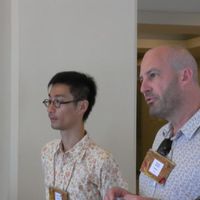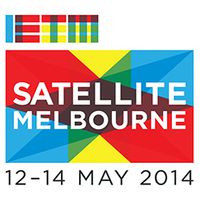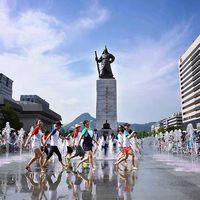IETM and contemporary performing arts in Asia

 What is IETM and why have we been focusing on Asia?
What is IETM and why have we been focusing on Asia? IETM is a network committed to contemporary performing arts and to collaborating across national borders. Our 440 member-organisations from over 45 countries. include festivals; theatres and arts centres; theatre, dance, music-theatre and interdisciplinary companies; programmers, producers; service organisations and associations; and public authorities on city, regional, national and supranational levels.
Our Mission is to stimulate the quality, development and contexts of contemporary performing arts in a global environment. We initiate and facilitate professional networking. We encourage a dynamic interchange of information and know-how and we present of examples of good practice.
IETM co-organises professional conferences - 2 large and up to 4 smaller ‘satellites’ each year - which include informal training, debate and performance platforms. This is our networking: creating environments where professionals can meet one another, exchange information, pick up ideas and skills and move towards the kind of mutual understanding which is the basis of collaborative artistic exchange projects.
In 2002 we opened from "Europe" to the global arena. Many of our members, already programming Asian artists and cooperating with Asian arts organisations, asked us to look for partnerships in Asia. Our task was to provide bridges for the Europeans, to find out who’s who in the contemporary performing arts in Asia, who’s doing what, how they do it, and what role the performing arts and artists play in their societies.
We found that many Asian colleagues were also curious to find out more about the key European professionals, how Europe "works" in our sector, how the European audiences approach the arts, etc.
IETM has been particularly influential in spreading and developing the practice of co-production (and touring) of contemporary performing arts, quite common in Europe. Our Asian (and Australian) colleagues were also interested to find out more about this method of collaboration.
For IETM, a strongly European-based network which is open to the world, these Asian collaborations bring us a lot : they open our eyes and minds to different ways of seeing the world and different perspectives of artists.
If we believe – as we do - that artists and art reflect and comment upon contemporary society, then as arts organisers, producers, presenters and supporters, we must also engage with the global nature of our current society.
As the world becomes "Easternised" (following the decades of Westernisation), we need to understand as much as possible about the vast and vastly different cultures of the many Asian countries and regions.
If we believe – as we do – that the arts serve to touch people, inspire them and make them see the world in different ways, then we must also make efforts to understand what artists in Asia are saying, how they express themselves, where they fit into their own cultures, and which universal messages they are offering to us.
Thoughts during our exchanges
On trans-cultural meetings:
"In Korean, "dialogue" means "talking to each other face-to-face." Interactions and interchanges amongst people, information and projects in the performing arts sector begin with having conversations face-to-face. In a nutshell, performing arts management is a process of learning how to talk and exchange through performing arts despite cultural differences and diversity."
On artists’ mobility:
"... I want to encourage us to reflect on a mobility which is not bound by laws but is instead an ideal space where imaginations can take flight. In the increasingly complex and diverse global world, we have to harness the advantages of being inside and outside of our cultures, our reference points. This is what mobility provides. We become very aware of the difference in how our home city operates and how our host city operates. With mobility, we can see that our city is not the worse place on earth! But we can also crystallise the problematics of our local methods, our local strategies. Mobility demands us to engage with difference, we realize there is no standard way. Mobility reveals our own prejudices and implores us to conquer these weaknesses in ourselves."
On good practice :
"The guiding principles of our organization are to be: responsive, educative, transparent, collaborative, and problem solving. Education is important because we are trying to build up the skills of Indonesian artists and arts workers. By transparency, we mean promoting an accountable decision making process."
On responsibility:
"...In that moment, I realized the extreme consequences of the choices we make as programmers, organizers or producers. The main choice is not which artists and artworks you choose and which you do not, but how you want to relate to the artists, to your audiences and to society."
On Asia-Asia networking:
"I still have a dream. I imagine that there will be a space in Asia that will encourage meetings between government officials, presenters, and artists. A place in which government officials who are in charge of cultural exchanges can arrange to have meetings every couple of years and presenters who are interested in participating in these kinds of collaborations will be invited to meet together. Artists will also be invited to meet together. If there was such a place in Asia, in any city, I think it would be a mecca for artists and presenters."
IETM and Asia : at least up til now!
From 3 - 5 March 2008, IETM (international network for contemporary performing arts) enjoyed its 4th Satellite Meeting in Asia. IETM’s collaboration with TPAM (Tokyo Performing Arts Market) . This was the latest in a series of our Asia – Europe collaborations:
-an IETM Satellite co-organised with PAMS (Performing Arts Market Seoul) and KAMS (Korean Arts Management Service) in October 2007, and participatoin at the Asian Performing Arts Forum in Gwangju, February 2007
-an IETM Satellite in Beijing and Shanghai in October 2006, "China-Europe Performing Arts Symposium", in collaboration with CAPA (China Performing Arts Association), the Beijing Modern Dance Company and a host of others.
-our first Asia-Europe Satellite, in June 2005, "Critically Speaking : Asia & Europe Contemporary Performing Arts Colloquium", in Singapore, in partnership with APAAF (Association of Asian Performing Arts Festivals), SEAMEO-SPAFA (South East Asian Regional Centre for Archaeology and Fine Arts), the Singapore Arts Council, Arts House and others.
-In 2003 and 2004, special presentations, speeches and showcases by Asian artists in IETM conferences in Budapest and Birmingham. Advocacy for artists’ mobility in Vietnam and the ASEAN countries.
The Future?
At the close of our TPAM-IETM Satellite Meeting in Tokyo this year, several key Asian professionals launched their desire to explore the creation of an IETM-type network for Asia. We will support this initiative in every way, and with our colleagues the very best of energy, spirit and luck in order to form it!
As for IETM, we have a lot more looking, listening and talking to do : Asia is a very, very big place!
For more information on IETM, visit www.ietm.org
Mary Ann DeVlieg
IETM Secretary General
Similar content
from - to
14 Feb 2011 - 17 Feb 2011
from - to
12 May 2014 - 14 May 2014
posted on
15 Dec 2011
from - to
07 Sep 2015 - 12 Sep 2015





